Oncology
Term: 16.05.2020 – 30.06.2023
Despite the improvement through tyrosine kinase inhibitors (TKIs), treatment resistance, relapse and therapy-induced side effects are central problems of CML therapy. Our interdisciplinary project addresses the question whether and how TKIs alter CML cell metabolism and induce synthetic lethality in combination with compounds specifically targeting metabolic pathways. Our approach could help to improve efficacy and reduce side effects of CML treatment in pediatric and adult patients alike.
 |
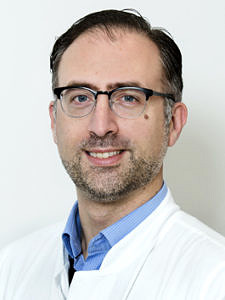 |
| Principal Investigator Prof. Dr. Markus Metzler Phone: +49 9131 85-33117 E-Mail: markus.metzler@uk-erlangen.de |
Principal Invertigator Prof. Dr. Dimitrios Mougiakakos E-Mail: dimitrios.mougiakakos@uk-erlangen.de |
Term: 01.05.2020 – 31.07.2023
We have identified PU.1 as a key regulator of fibroblast polarization. Its role in colorectal carcinoma (CRC) is unknown. We will address the following aims: (1) characterization of cancer-associated fibroblast (CAF) heterogeneity in CRC, (2) analysis of CAF polarization-dependent fibrocrine effects in vitro and (3) in experimental animal models, and (4) validation of the results in CRC tissues. Deciphering the role of fibroblast polarization in CRC may provide a new target for therapy.
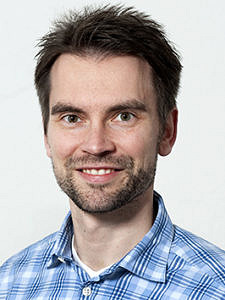 |
 |
| Principal Investigator Dr. Andreas Ramming Phone: +49 9131 85-34742 E-Mail: andreas.ramming@uk-erlangen.de |
Principal Investigator Prof. Dr. Michael Stürzl Phone: +49 9131 85-39520 E-Mail: michael.stuerzl@uk-erlangen.de |
Term: 01.04.2023 – 30.09.2025
Our preliminary data indicate a beneficial role of the metabolic enzyme ACLY in T cells in the AOM/DSS-induced CAC (colitis-associated cancer) model, while published data implicate that upregulation of ACLY in colon tumor cells promotes metastasis. Thus, we aim on the development of clinically applicable strategies to trigger ACLY activity selectively in tumor-infiltrating T cells and will focus on the identification of those CAC patients, who could best benefit from an ACLY-targeting therapy.
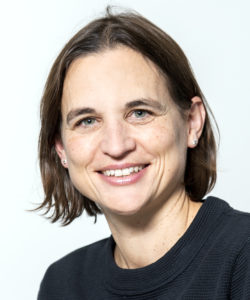 |
| Principal Investigator PD Dr. Imke Atreya E-Mail: imke.atreya@uk-erlangen.de |
Term: 16.03.2023 – 15.09.2025
The transcription factor family AP2 has important functions in development. AP2e was discovered in cooperation with this PI. We newly observed delayed onset of tumorigenesis in a murine Ap2e-deficient melanoma model. This is supported by expression data showing induced AP2e mRNA expression in early tumor development and a correlation of high Ap2e expression with reduced overall survival. In the project, the role of Ap2e in development and progression of melanoma is explored in molecular detail.
 |
| Principal Investigator Prof. Dr. Anja Bosserhoff E-Mail: anja.bosserhoff@fau.de |
We have demonstrated that the EMT-activator ZEB1 provides cancer cells not only with aberrant motility, but also with survival traits enabling tumor progression, metastasis and drug resistance. Our aim is to eliminate these aggressive ‘untargetable’ EMT-state cancer cells, which strikingly show a high sensitivity to ferroptotic cell death. In this project, we want to elucidate the molecular basis of ZEB1 – associated ferroptosis sensitivity to exploit it as a novel therapeutic target.
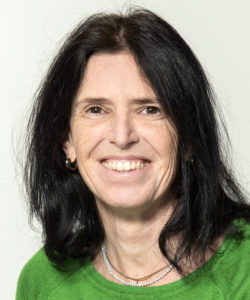 |
| Principal Investigator Dr. Simone Brabletz E-Mail: simone.brabletz@fau.de |
The neuropeptide Y (NPY) system was shown by the applicant to be a major driver of HCC. Transcriptome screening revealed that DEAD-box RNA helicase DDX46 is a novel and attractive NPY-regulated target in HCC. The major aims of this study are to characterize NPY-mediated regulation of DDX46 and to decipher the role of DDX46 as a novel and promising diagnostic and therapeutic target in HCC.
Term: 01.03.2023 – 31.08.2025
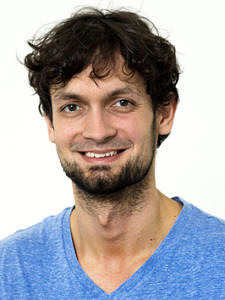 |
| Principal Investigator PD Dr. Dr. Peter Dietrich E-Mail: peter.dietrich@uk-erlangen.de |
Urothelial carcinoma (UC) is among the ten most common cancers worldwide and overall therapy systemic response rates are limited (~20%). Molecular insights in processes driving therapy resistance are scarce. Here, we propose to expand our existing patient-derived living UC biobank, develop a novel zebrafish model to study the role of fatty acid metabolism and ferroptosis in UC, and to determine if the zebrafish allows the pre-selection of therapy responsive patients.
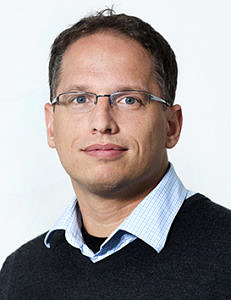 |
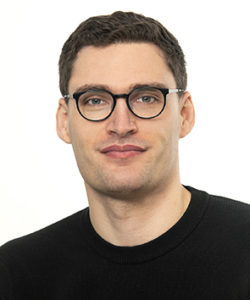 |
| Principal Investigator Prof. Dr. Felix Engel E-Mail: felix.engel@uk-erlangen.de |
Principal Investigator Dr. Markus Eckstein E-Mail: markus.eckstein@uk-erlangen.de |
Term: 01.04.2023 – 30.09.2025
Non-alcoholic fatty liver disease (NAFLD) is the leading cause of hepatocellular carcinoma (HCC). Furthermore, NAFLD promotes HCC progression but the mechanism are elusive.
Our preliminary work indicates that enhanced expression of prosaposin (PSAP) in NAFLD promotes HCC growth.
Therefore, this project aims to characterize the molecular mechanisms by which PSAP affects HCC cells, to test the therapeutic potential of PSAP inhibition and to validate the function of PSAP in clinical HCC samples.
 |
| Principal Investigator Prof. Dr. Claus Hellerbrand E-Mail: claus.hellerbrand@fau.de |
Term: 16.03.2023 – 15.09.2025
CD19-directed chimeric antigen receptor (CAR) T-cells have shown high efficacy in the treatment of B-cell malignancies and are now emerging as a standard approach for patients with relapsed and refractory disease. Despite this progress, a significant portion of patients still experience resistance to treatment. We aim to understand the intrinsic mechanisms controlling persistence and effector functions of CAR T-cells and therefore identify strategies to overcome treatment failure.
 |
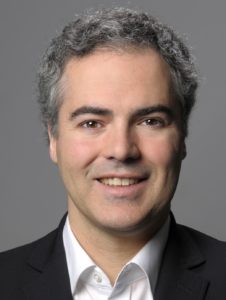 |
| Principal Investigator PD Dr. Simon Völkl E-Mail: simon.voelkl@uk-erlangen.de |
Principal Investigator Prof. Dr. Julio Vera Gonzalez, E-Mail: julio.vera-gonzalez@uk-erlangen.de |
